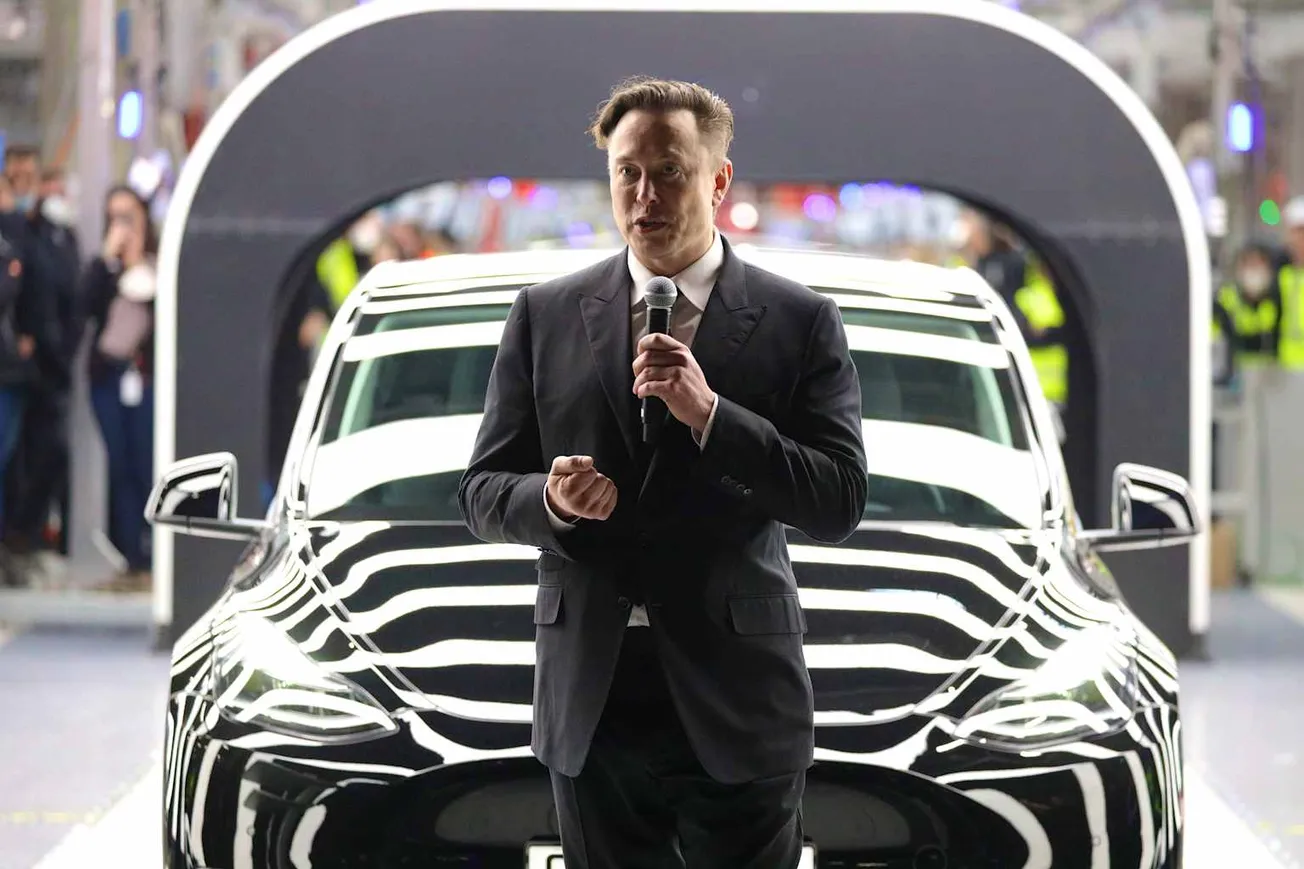Table of Contents
Tesla is facing a severe sales collapse across Europe, with registrations plummeting by up to 80% in some markets amid growing backlash against CEO Elon Musk's controversial political stances and intensifying competition from Chinese manufacturers.
Key Takeaways
- Tesla's European sales declined 37% in Q1 2025 compared to Q1 2024, with April showing continued sharp drops despite the new Model Y becoming available.
- In Sweden, Tesla sales crashed by a staggering 80.7%, while France and Denmark saw declines exceeding 50% in April 2025.
- Elon Musk's support for right-wing political figures and parties in Europe has sparked protests, boycotts, and even vandalism against Tesla properties.
- Chinese competitor BYD posted record sales of 380,089 vehicles in April, with fully electric models outselling hybrids for the first time since early 2024.
- BYD's new flash-charging technology promises to fully charge EVs in just 5-8 minutes, directly addressing a key consumer concern about electric vehicles.
The Dramatic European Sales Collapse
Tesla's European market presence is deteriorating at an alarming rate. After delivering 11% fewer vehicles in Europe in 2024 compared to 2023, the company's sales have plunged even more dramatically in 2025. The first quarter saw a 37% year-over-year decline, but April's numbers reveal an even more troubling trend.
The situation is particularly dire in Sweden, where Tesla sales crashed by an astonishing 80.7% compared to April 2024, with only 208 vehicles sold versus 1,052 in the previous year. Other key European markets show similarly concerning patterns, with France experiencing a 59.4% drop (just 863 vehicles sold) and Denmark seeing a 67.2% decrease (only 180 cars).
Tesla initially attributed the disappointing Q1 performance to production changes related to the Model Y refresh, which limited vehicle availability. However, this explanation has lost credibility as sales continue to decline sharply in April despite the company confirming that production had returned to normal levels.
Musk's Political Controversies Fueling Consumer Backlash
A significant factor in Tesla's European troubles appears to be CEO Elon Musk's increasingly controversial political activities. Musk has become a prominent supporter of U.S. President Donald Trump and now serves as an administrator in Trump's Department of Government Efficiency.
More problematically for European consumers, Musk has been actively supporting far-right political movements across Europe. He has publicly backed Germany's Alternative für Deutschland (AfD) party, even stating that "only the AfD can save Germany" and congratulating the party's co-leader Alice Weidel for electoral performance. In the UK, Musk has criticized Prime Minister Keir Starmer and expressed support for controversial figure Tommy Robinson.
These political stances have triggered tangible consequences. Tesla properties have become targets for vandalism in multiple European countries. In Sweden, activists from the Restorelands group sprayed orange paint on two Tesla dealerships in Stockholm and Malmö. More seriously, a fire at a Tesla dealership in Rome resulted in 17 vehicles being destroyed, with authorities investigating potential anarchist involvement.
In Germany, environmental activists vandalized a Berlin Tesla dealership with blue paint, while seven Tesla cars were destroyed by fire in the northern city of Emden. The United States has seen similar incidents, with individuals facing charges for arson events at Tesla showrooms and charging stations in Colorado, Oregon, and South Carolina.
Chinese Competition: BYD's Remarkable Rise
As Tesla struggles in Europe, Chinese electric vehicle manufacturer BYD is experiencing extraordinary growth. In April 2025, BYD sold 380,089 new energy vehicles (NEVs), representing a 21% increase from the 313,245 vehicles sold in April 2024.
Significantly, April marked the first time since January 2024 that BYD's fully electric vehicles outsold its hybrids. The company's EV sales surged 45% year-over-year to 195,740 units, while plug-in hybrid sales reached 176,875 units.
BYD's international expansion is accelerating rapidly. The company's overseas sales hit a record in April-the fifth consecutive month of growth-with 79,089 EVs and hybrids sold internationally, nearly double the previous year's figure. According to S&P Global Mobility, BYD's sales in Europe are expected to more than double in 2025, with projections of around 186,000 units sold.
The company's ambitious growth plans extend beyond 2025. BYD chairman Wang Chuanfu has announced that the company's sales target for 2025 is 5.5 million vehicles, including more than 800,000 in overseas markets. Compared to the 4,272,145 vehicles sold in 2024, this represents an overall increase of about 29%, with overseas sales targeted to grow by 92%.
Technological Innovation: BYD's Game-Changing Charging Solution
A key factor in BYD's competitive advantage is its groundbreaking charging technology. The company recently announced an ultra-fast EV charging system that it claims can charge electric vehicles almost as quickly as refueling a gasoline car.
BYD's new flash chargers can reportedly provide a full charge for its latest EVs within just five to eight minutes, comparable to the time needed to fill a conventional fuel tank. The technology, dubbed "Super e-Platform," is capable of peak charging speeds of 1,000 kilowatts and can provide power for 400 kilometers (approximately 250 miles) in just five minutes.
This innovation directly addresses one of the most significant barriers to EV adoption: charging time. As BYD founder Wang Chuanfu stated, "To completely solve users' anxiety over charging, our pursuit is to make the charging time for EVs as short as the refuelling time for fuel vehicles." The company plans to build more than 4,000 of these new charging stations across China.
Tesla's European sales crisis reflects a perfect storm of political controversy, intensifying competition, and technological innovation by rivals. As BYD continues its aggressive global expansion with game-changing charging technology, Tesla faces mounting pressure to address both its leadership's political activities and its competitive position in the rapidly evolving electric vehicle market.








